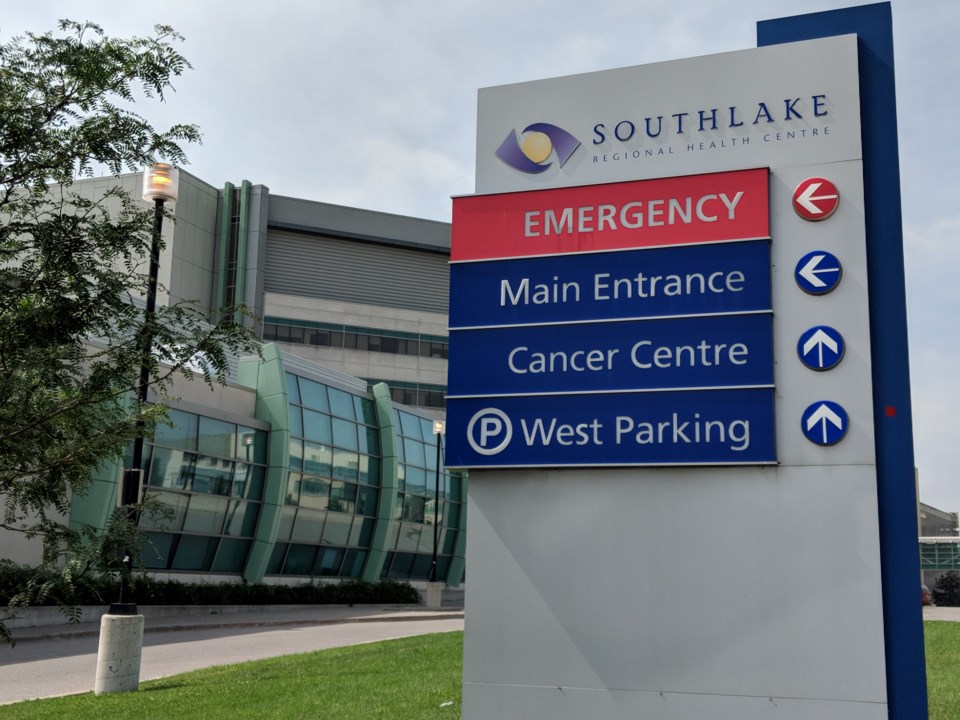Southlake Regional Health Centre will gradually resume outpatient surgeries and procedures as capacity permits, according the Newmarket hospital's executive vice-president of clinical services.
“Southlake follows the direction of the Ministry of Health and we have been advised to start planning the gradual resumption of outpatient surgeries and procedures,” said Barb Steed in an email statement.
However, the ability to tackle the backlog of non-urgent surgeries that were postponed as hospital cases increased significantly in recent months will be dependent on reduced numbers of patients, she added.
“Resuming surgical services to our full capacity to help address the backlog of cases depends on the hospital’s capacity as we care for patients with COVID-19 through the third wave of the pandemic.”
As of May 21, Southlake's ICU was at 65 per cent capacity, with 32 of its 49 ICU beds occupied. Six of the critical care beds are occupied by COVID-19 patients. An additional 22 COVID-19 patients are currently at Southlake.
Ontario’s chief medical officer of health, Dr. David Williams, advised hospitals last week that non-urgent surgeries could be resumed if they have the capacity, as COVID-19 cases decline and vaccination rates increase.
While Southlake has had to postpone some surgeries at periods throughout the pandemic, the province mandated on April 20 that all non-emergency surgeries and procedures at Ontario hospitals had to be put on pause to reduce the strain on the health-care system.
Southlake president and CEO Arden Krystal told NewmarketToday in a previous interview that they began cutting back on scheduled surgeries as cases began to dramatically increase last fall during the second wave of the pandemic.
"We’ve taken a pretty sharp reduction, one of the sharpest reductions in surgical volumes in the GTA, in fact, probably in the whole province," Krystal said.
Steed advised that patients will be informed about rescheduled procedures through their surgeons’ offices.
Ministry of Health criteria for resuming non-urgent surgeries includes a stable number of COVID-19 cases, enough PPE and medication, adequate capacity and staff, and the availability of care to support the patient outside the hospital following the procedure.
— With files from Debora Kelly
